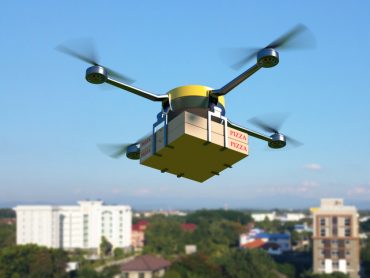Hospitality in the Age of Disruption
Every three years, under the auspices of Cornell University’s School of Hotel Administration, the Cornell Hospitality Research Summit (CHRS) offers a glimpse into some of the current and future issues facing our industry. This past version held in Ithaca, New York in early October 2017 was appropriately themed as ‘Opportunities in the Age of Disruption’, with roughly two dozen speakers offering their thoughts on the matter.
I was fortunate to be among those who were invited to attend and participate. For everyone who couldn’t make the trek, you learn more about the Center for Hospitality Research at: sha.cornell.edu. While the conference is open to all, the turnout from major brands was lackluster, especially when the agenda was posted far in advance with topics that offered true insights and practical innovations for our industry. The goal now is for me to provide you with some of the lessons gleaned to thereby help close the gap so we all might benefit.
The Age of Disruption
This name alone inherently suggests what the almost-insurmountable nature of the obstacles our industry is facing. The rapid rise of internet-based travel search and booking platforms has clearly shaken the traditional hotel business model. If any hotelier thought that the rise of online travel agencies (OTAs) was the ultimate game changer, the sharing economy will severely test everyone’s mettle.
The first presenter on the topic purported that this shared accommodations sector would top out by 2025 to about 9% of total room availability in the continental United States. He also contended that 30% to 40% of all Airbnb customers would otherwise have stayed with friends and family, thus insinuating that this company’s business is not competitive to hotels by displacing room nights at traditional properties.
However, as would be expected within a mostly academic audience, these claims were questioned and actively debated. Technical in nature and based upon a limited sample size, it was ultimately only one look at the ever-changing business landscape. Moreover, it should be noted that the findings did not wholly reflect the rise of millennials and post-millennials as an increasing percentage of travelers along with any increases in available alternate lodging inventory resulting from an overall rise in market prices which thereby incentivize the creation of more supply. Economic forces aside, however, there was no debate on the fact that Airbnb is a significant force and will dominate the conversation for years to come.
My input to the sharing economy discussions was to present what hotels can do in the face of continued pressure from these alternate lodging providers. In broad strokes, my proposition was that, like a leopard, hotels cannot change their strips. Rather than try to be everything for everyone, focus on your strengths and only engage in those activities that can execute with perfection. Give guests a reason to choose your property by outlining your key benefits versus shared accommodations which happen to mostly be service-oriented in nature.
Is Airbnb Your Next OTA?
Another presenter talked about how Airbnb would be expanding its product line, further blurring the lines between the traditional and sharing economies. He cited several programs already available to Airbnb hosts that would allow them to add services very much like a hotel. These services included housekeeping, food & beverage, concierge (via a mobile app), experiential travel recommendations and even forms of security. He then noted that Accor had already made a foray into the shared economy model with the purchase of onefinestay as well as its 2016 investments in Squarebreak and Oasis.
At this stage in the game, one might argue that Airbnb will settle into its role as just another booking platform within an increasingly complex channel mix. In effect, what would stop you from placing some of your inventory into their website? However, the seeds of change have already been sown, and as more consumers discover the many advantages of alternate lodgings over traditional providers, we may be losing customers permanently.
One of the biggest gripes that hoteliers have with the OTAs is that their customers are not actually the hotel’s and that return visits or loyalty to a given third-party booking platform does not transfer over to any single operator. For example, an Expedia leisure traveler who books and has a terrific weeklong stay at a hotel is still unlikely to repeat his or her vacation at the same property versus browsing the multitude of other options available within this OTA’s powerful search engine.
Sharing economy purveyors like Airbnb have only doubled down on this ‘endless choices’ mentality that the OTAs helped to plant. While it’s clear that hotels will have to find a way to leverage the sharing economy for their own benefit, the damage towards overall travel behavior may already be irreversible.
Pop-Up Hotels
As a variation on this new type of transient business model, the founder of WhyHotel presented a novel accommodations concept. Most interesting, the brand’s genesis involves utilizing the time gap between a residential apartment’s opening and full occupancy. Operating for only a limited period – typically up to 24 months – WhyHotel furnishes every suite, offering each in the marketplace in a manner very much like any other hotel property via a website with its own online booking engine.
Using only newly built product, this ‘pop up’ hotel idea has been exceptionally well-received by guests with near-perfect TripAdvisor scores. This is almost like the antithesis of a hotel chain; there’s no need for any loyalty as the properties life expectancy is typically measured in months. Still, with multiple properties in a variety of popular destinations, new-build quality and value pricing, the concept is highly viable. Furthermore, it demonstrates how the sharing economy can manifest itself in many new directions, all driven by internet availability.
Artificial Intelligence
Humans (well most of us) have natural intelligence. The term artificial intelligence (AI) is applied when a machine mimics the cognitive functions that are associated with any form of advanced thinking, such as learning, pattern recognition and problem solving. AI will be taking an increasingly prevalent role in how hotels operate and in decision making. For example, forecasting and modeling of occupancy using AI will generate optimal revenue yield.
AI will also be used to analyze past guest data – that is, accessing the customer relationship management (CRM) database – to develop promotional programs that are tailored to the specific needs of subgroupings of guests and are timed to meet those needs when they are most wanted in order to maximize loyalty opportunities. To this end, one speaker even predicted that the value of a brand’s visual iconography and established awareness was insignificant in comparison to the value of its database. Another suggested that ‘a million records’ was the threshold of utilizing AI with a high degree of accuracy.
Another tangential application of this advanced processing capacity of computers has come in the form of biometric analysis hardware and software. Leading the way here are facial recognition tools which have proven to be tremendously useful for security needs. I suspect that the advancements for this purpose alone are driving the availability of more cost-effective solutions. The launch of Apple’s latest iPhone X – the model that utilizes facial recognition as its unlock identifier – underscores how this will soon become a simple, low-cost item.
With several vendors moving this field foreword at a rapid pace, practical uses of facial recognition are predicted to be integrated into most hotel operations very soon. No longer will a guest require keys to enter his or her room, or even to complete most payment functions. Lastly, with the power of AI, cameras can also detect when people leave bags or luggage unattended and automatically alert security so they can handle the situation. As all biometric detection systems become more intuitive, their applications only grow, with protecting guests at the vanguard but with many other guest service-oriented uses also forthcoming.
Art Differentiates
In stark contrast to all the data-centric discussions about technological interruptions, we were treated to a delightful slideshow from a prominent interior designer who demonstrated that art is a critical element in creating a sense of place and in differentiating a property from competitors. By detailing a wide array of examples, it was noted that art no longer comes just through the traditional mediums of paintings and sculptures, but includes full video wall panels, flooring, exterior lighting, ceiling installations and recycled materials. Neatest of all, she highlighted a piece of software that takes a photo of an individual and digitizes it into a pixelated representation, thereby creating personalization opportunities.
While many of the examples shown were probably out of the price range of most economy and mid-range properties, it was clear that success in our industry requires more than run-of-the-mill print reproductions, which are essentially one level above painting the drywall. Instead, art is essential for creating individual points of interest and for drawing locals who will come simply to explore the space.
Budget recommendations included community photography and local artist participation. Again, think about how you can create art on any surface or repurposing existing materials for more creative endeavors. Importantly for owners, there is a need to recognize the direct correlation between art and better rates as well as the potential for asset growth. Art is an investment unto its own, after all.
Conclusions
The age of disruption is here and is only going to grow from here on out. To varying degrees, it will affect all of us in the hospitality industry. To conclude, here are seven steps to ensure that you succeed in this maelstrom of change.
- Understand the sharing economy, how it works and how it will grow.
- Embrace it with caution. For hotels, this means leveling the playing field by first ensuring that every accommodation pays the same taxes, has the same licenses and inspections.
- Put local people and local initiatives first.
- Build partnerships. This underscores the importance of hotel associations, resident groups and government participation.
- There is no one-size-fits-all approach. Geographic and demographic issues will influence the approaches that you take.
- Disrupt the disrupters. Focus on your own USP and your own reasons for success.
- Integration is common sense, not a strategy and you must integrate all of your operations with every point of guest service delivery for optimal results.




